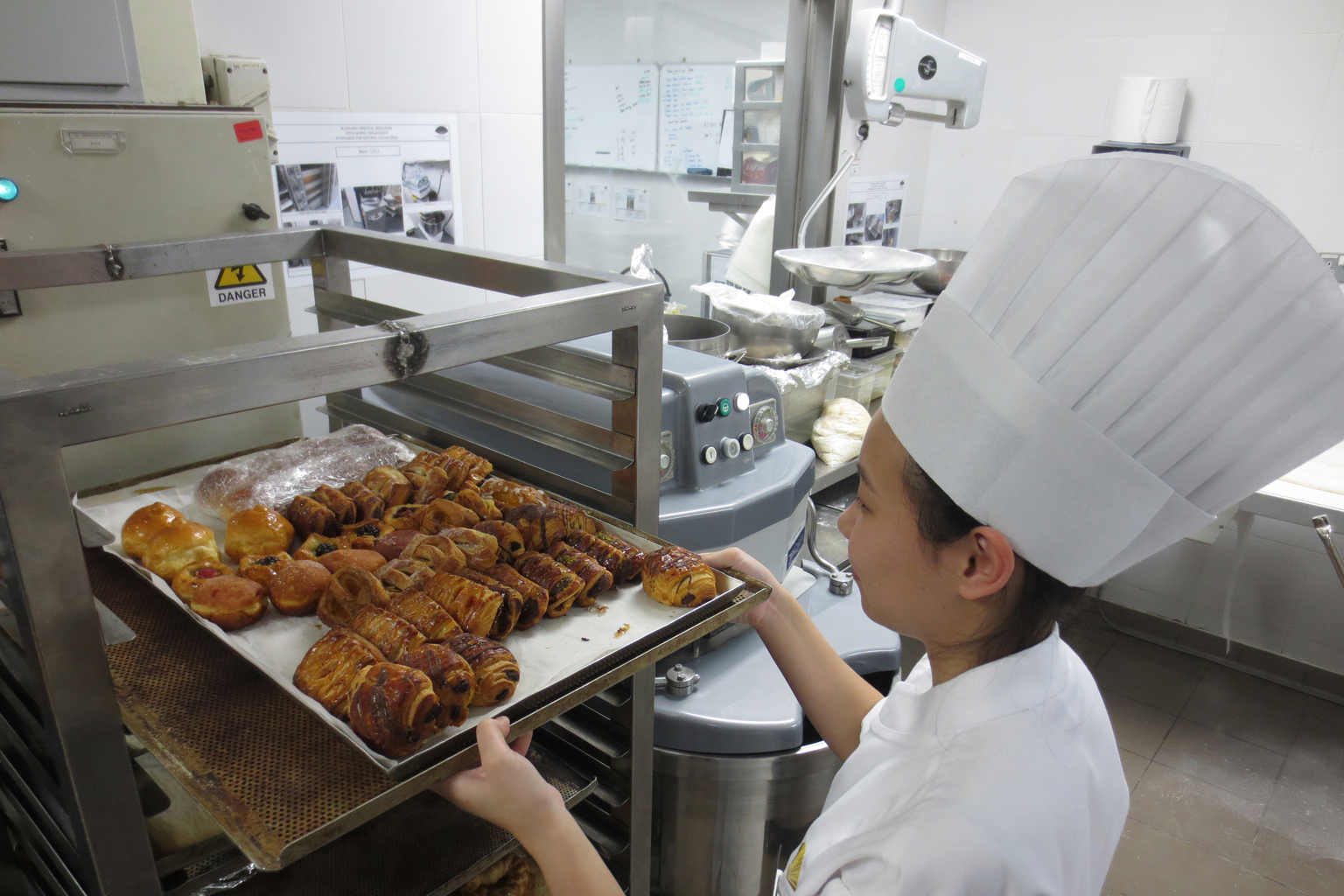Food waste: E-book's food for thought
NEA guide aimed at educating retail food outlets amid rising food wastage here
Sign up now: Get ST's newsletters delivered to your inbox

A chef at Mandarin Oriental Singapore setting aside excess pastries for donation to Food from the Heart, a non-profit organisation that channels unused food to the needy. At the 3R Awards for Hotels yesterday, Mandarin Oriental was one of several hotels to win a top award for efforts such as donating excess food and soap, and recycling food into water and compost.
PHOTO: COURTESY OF MANDARIN ORIENTAL SINGAPORE
Amid mounting food waste, a guidebook to help retail food establishments minimise waste was launched yesterday.
The e-book, which can be found on the National Environment Agency (NEA) website, offers a step-by-step guide for restaurants, food courts and other eateries to develop waste reduction plans.
Tips include using smart technologies for inventory management and redistributing excess food products. Information on food waste treatment is also provided.
The guidebook, developed by the NEA and the Agri-Food and Veterinary Authority, was launched by Senior Minister of State (the Environment and Water Resources) Amy Khor at an awards ceremony for hotels that have implemented waste reduction measures.
At the event in Mandarin Oriental Singapore, Dr Khor said food waste is a major concern in Singapore, with 790,000 tonnes generated last year. Over the past decade, food waste produced here has increased by 45 per cent, she said.
"We need a holistic approach to tackle food waste, in terms of minimisation, redistribution and recycling, and hotels have a key role to play," said Dr Khor.
Fourteen hotels were recognised for their efforts to reduce, reuse and recycle waste at the biennial 3R Awards for Hotels conferred by the NEA and Singapore Hotel Association. Top awards went to Crowne Plaza Changi Airport, Mandarin Oriental Singapore and Marina Bay Sands for efforts such as donating excess food and soap, and recycling food into water and compost.
Marina Bay Sands' (MBS) executive director of sustainability Kevin Teng said the integrated resort minimises overproduction across its dining options, in part by using a smart meter system that tracks food waste. "At least a third of our total waste is food waste, so it's important to measure where it comes from," said Mr Teng.
MBS also uses a blast chiller to freeze excess cooked food for donation to local charities.
Food Bank Singapore co-founder Nichol Ng said that while the guidebook is a step in the right direction, more can be done to educate restaurant owners and food manufacturers on donating excess food.
"Restaurant (owners) lack knowledge on how they can go about doing it, and are apprehensive about what the rules are," said Ms Ng, 38.
The NEA said that while it does not regulate food donations, those intending to do so should practise good hygiene to ensure that the food is safe for consumption.
Restaurant Association of Singapore president adviser Andrew Tjioe said that while food wastage is mainly from buffets, "every restaurant would like to reduce food wastage, because it reduces costs also".


